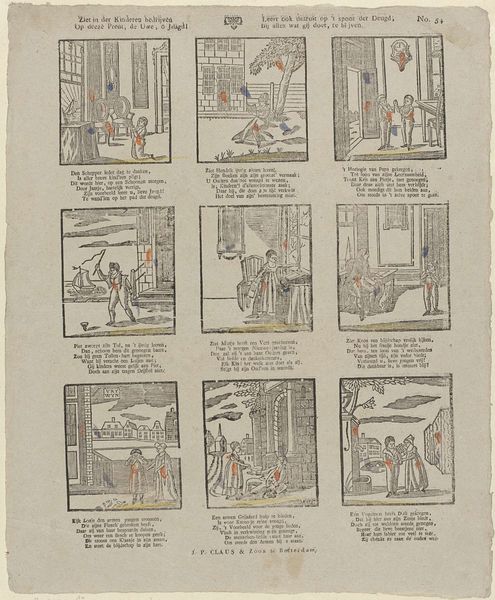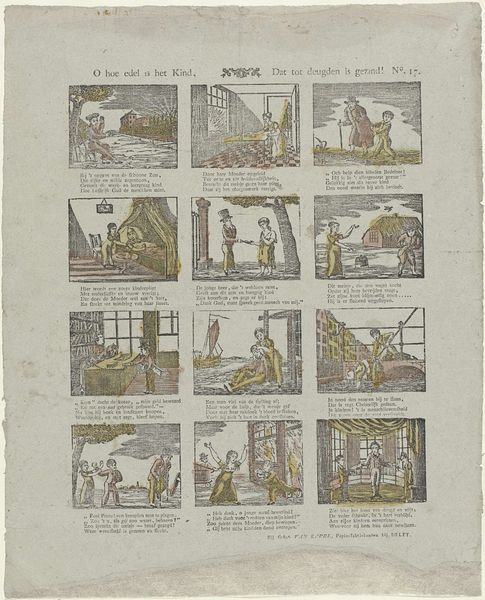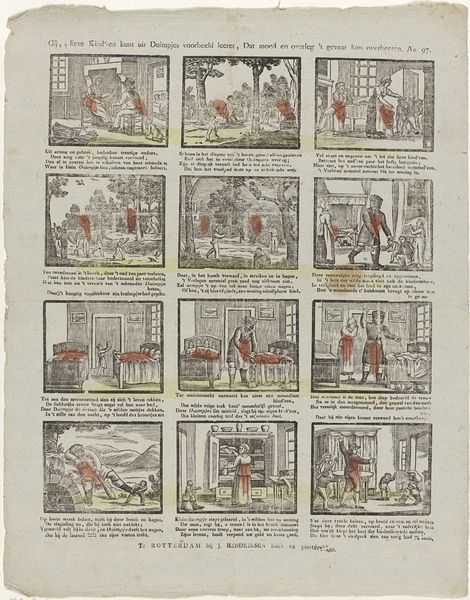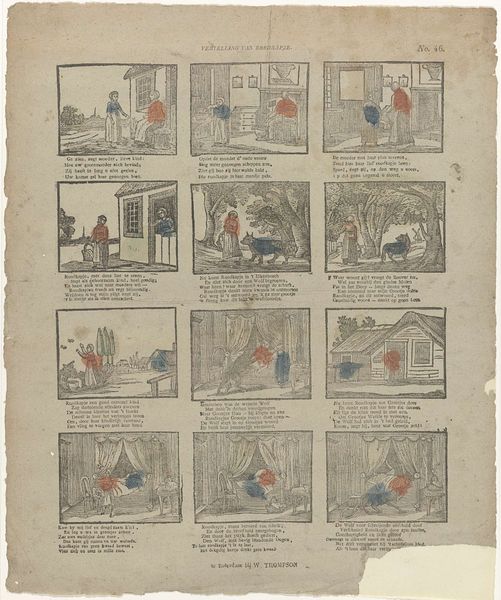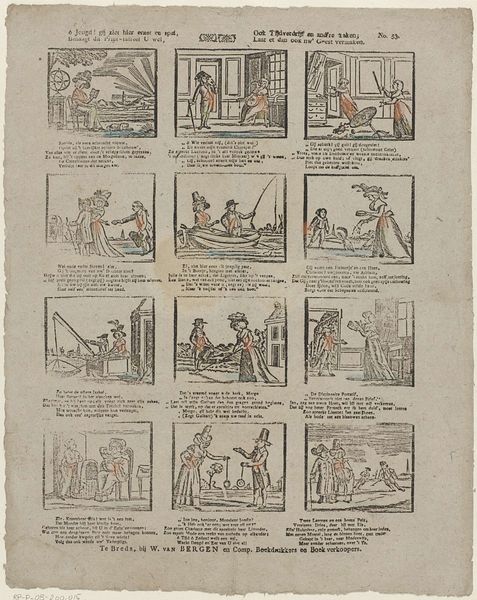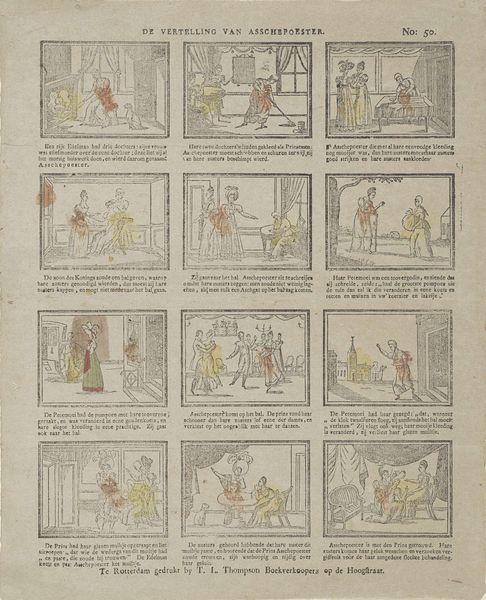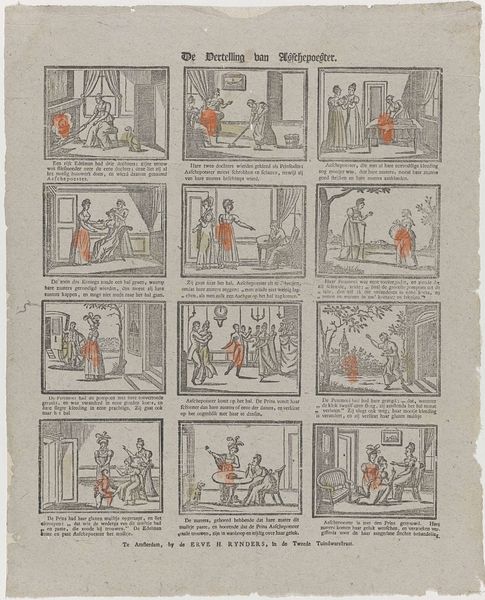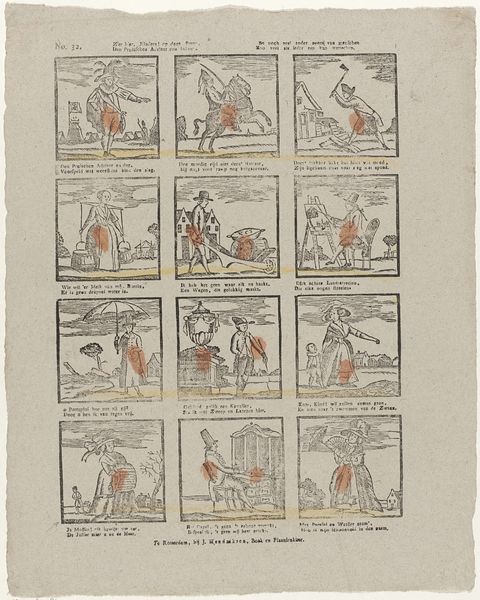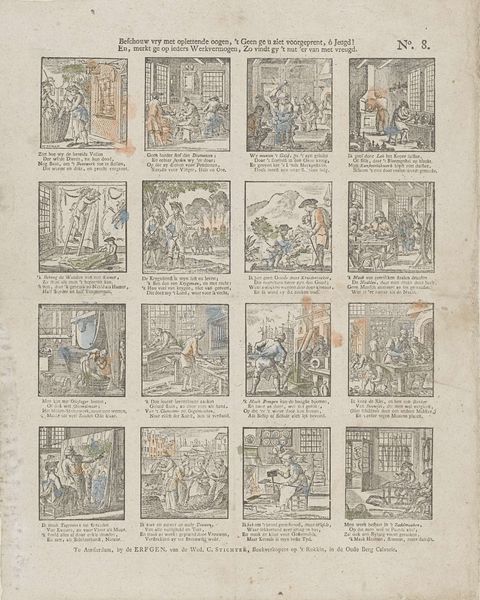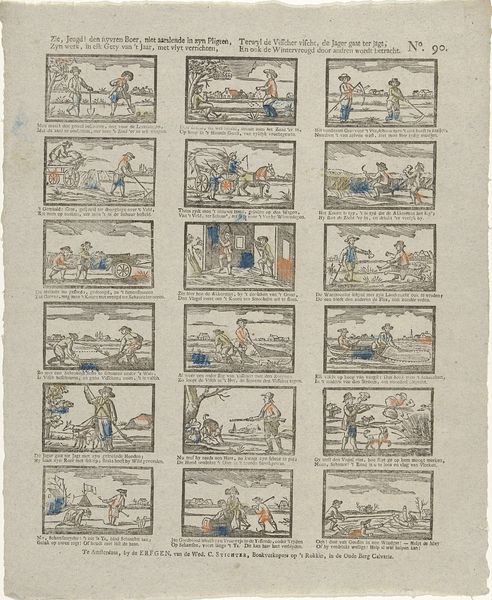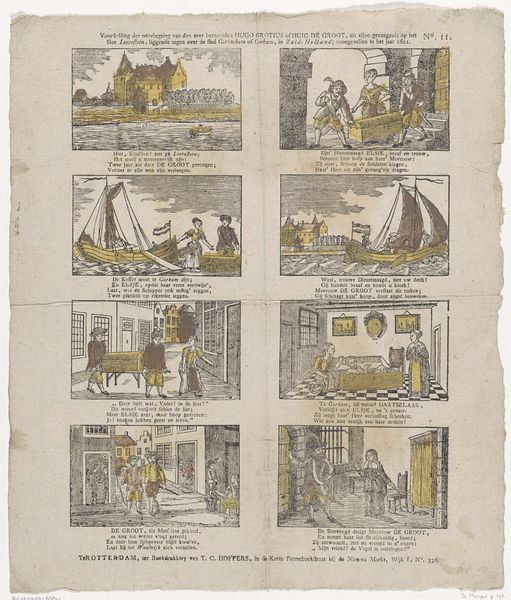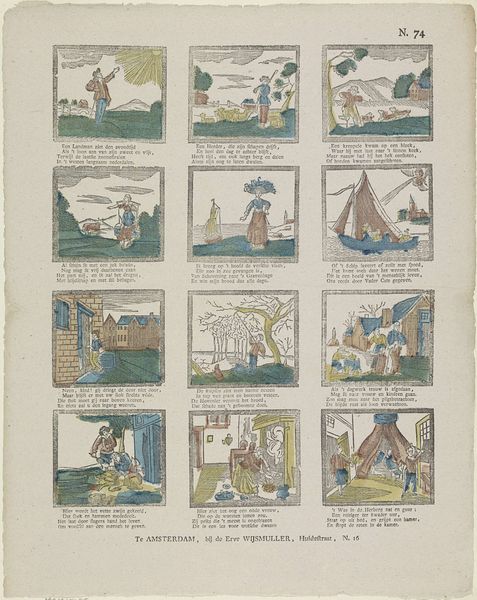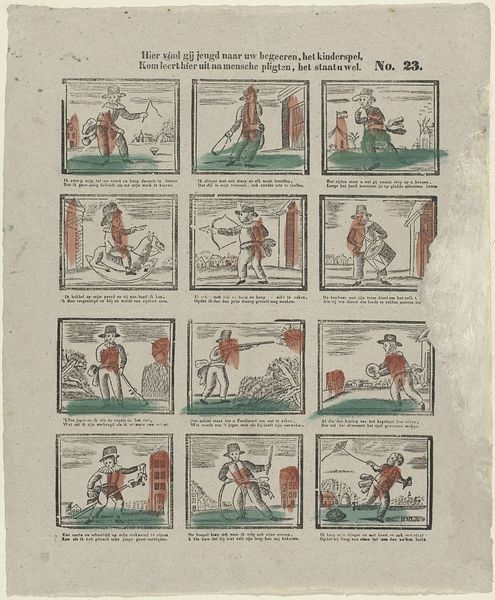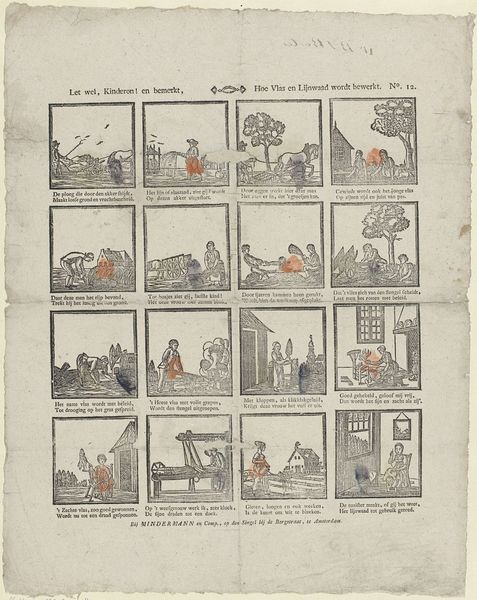
drawing, print, pen
#
drawing
#
comic strip sketch
#
quirky sketch
#
narrative-art
# print
#
sketch book
#
figuration
#
personal sketchbook
#
sketchwork
#
thumbnail sketching
#
comic
#
pen work
#
sketchbook drawing
#
pen
#
genre-painting
#
storyboard and sketchbook work
#
sketchbook art
Dimensions: height 407 mm, width 331 mm
Copyright: Rijks Museum: Open Domain
Editor: So, this is “Karakterschetsen van jonge lieden,” or “Character Sketches of Young People,” by Rudolph van Groenenbergh, dating from 1810 to 1822. It looks like a printed drawing, almost like a very early comic strip. The style seems very simple, almost childish. I’m struck by the contrast between its playful appearance and the longer bits of text below each image; what story could it be telling? Curator: Well, seeing this, I immediately think about the role of printed imagery in the early 19th century and how it helped to shape public opinion and reinforce social norms. These “character sketches,” coupled with the text, act as mini-sermons, presenting models of behavior—or, more likely, misbehavior—for young people. Notice how each panel presents a small scene, like a vignette from a play. Where do you think this imagery positions children in society? Editor: I guess as beings needing guidance and moral correction? The stories don't seem like outright condemnation, but rather a gentle mocking? Curator: Precisely! The tone suggests an emerging bourgeois sensibility, one that valued decorum and self-control. The artist uses humor to underscore these virtues, creating a public sphere of social commentary, influencing ideas. These images probably circulated widely, shaping the way people thought about childhood itself. Does it remind you of later publications? Editor: It’s making me think of Victorian moral tales, but aimed at a slightly younger audience. The print format democratizes the message. It is very interesting to consider the public’s view of the time through such a small piece. Curator: Exactly. By looking at art like this, we see how societal values and power dynamics get encoded into everyday imagery, influencing behaviour over time. Editor: I never considered that a comic could have a deep social function. Thank you!
Comments
No comments
Be the first to comment and join the conversation on the ultimate creative platform.
